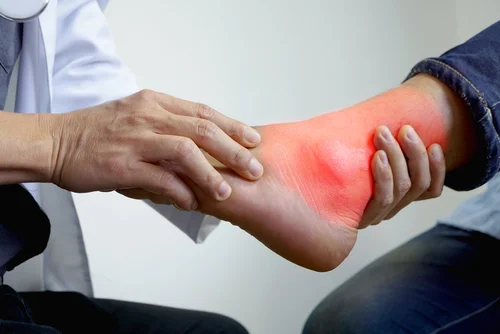Gout: Symptoms, Management, and Expert Care
Gout is a common form of inflammatory arthritis that can cause intense pain and discomfort, primarily affecting the joints. It results from an accumulation of uric acid crystals in the joints, leading to inflammation and swelling. Understanding the symptoms, taking preventive measures, exploring treatment options, and knowing where to find expert care can empower individuals to manage this condition effectively.
Key Symptoms
Gout typically presents with a sudden onset of severe pain, often described as a burning or throbbing sensation. The most commonly affected joint is the big toe, but it can also impact other joints such as the ankles, knees, elbows, wrists, and fingers. The symptoms can include:
- Intense Joint Pain: The pain usually begins at night and can be debilitating. Most individuals experience a rapid escalation of pain within the first 12 to 24 hours of an attack.
- Swelling and Redness: The affected joint becomes swollen, warm to the touch, and visibly red or purple. The skin over the joint may appear shiny and stretched.
- Limited Mobility: As the pain increases, it can severely restrict movement in the affected joint, making it difficult to walk or perform daily activities.
- Recurring Episodes: Gout attacks can recur, with periods of remission in between. Without proper management, attacks may become more frequent and severe.
Precautions for Prevention

Preventing gout involves making lifestyle changes and managing risk factors. Here are some effective precautions:
- Dietary Changes: Diet plays a significant role in managing uric acid levels. Limiting foods high in purines, such as red meat, organ meats (like liver), and certain types of seafood (like sardines and anchovies) can help. Instead, focus on low-fat dairy products, whole grains, fruits, and vegetables. Increasing hydration by drinking plenty of water is also essential, as it helps flush uric acid from the body.
- Weight Control: Maintaining a healthy weight can significantly lower uric acid levels. Even modest weight loss can help reduce the risk of gout attacks. A balanced diet combined with regular exercise is the best approach for weight management.
- Alcohol Moderation: Alcohol, especially beer and spirits, can increase uric acid levels and trigger gout attacks. Limiting alcohol consumption, particularly during known high-risk periods, can help prevent flare-ups.
- Regular Health Check-Ups: Routine monitoring of uric acid levels is crucial for those with a history of gout. Regular check-ups with a healthcare provider can help keep track of potential triggers and provide necessary lifestyle and medication adjustments.
Treatment Options
Treating gout involves a combination of medications, lifestyle modifications, and, in severe cases, surgical interventions. Here’s a detailed look at the treatment options:
- Medications:
- Nonsteroidal Anti-Inflammatory Drugs (NSAIDs): These are often the first line of treatment during acute attacks to relieve pain and inflammation. Common NSAIDs include ibuprofen and naproxen.
- Colchicine: This medication can be effective in treating acute gout attacks, helping to reduce inflammation and pain.
- Corticosteroids: If NSAIDs and colchicine are not suitable, corticosteroids may be prescribed to help manage inflammation and pain.
- Uric Acid-Lowering Medications: For long-term management, medications like allopurinol and febuxostat can help reduce uric acid levels in the body, preventing future attacks.
- Lifestyle Modifications: Incorporating regular physical activity, managing stress, and adhering to dietary recommendations are critical components of gout management. Activities like walking, swimming, or cycling can improve overall health and reduce the risk of attacks.
- Surgery: In severe cases where joint damage has occurred, or large tophi (deposits of uric acid crystals) are present, surgical intervention may be necessary. Procedures may involve the removal of tophi or repair of damaged joints.
Expert Insights

For individuals struggling with gout, consulting specialists in rheumatology is crucial for effective management. Experts like Dr. Robert Landewé and Dr. Tuhina Neogi are known for their significant contributions to gout research and treatment. Their work emphasizes the importance of individualized care plans that take into account each patient’s unique circumstances.
Renowned institutions such as the Mayo Clinic and Cleveland Clinic provide comprehensive care for gout patients. These facilities often have multidisciplinary teams that include rheumatologists, nutritionists, and physical therapists to ensure a well-rounded approach to treatment.
For further detailed information, consider visiting reputable sources such as the Arthritis Foundation. These organizations provide valuable insights into managing gout effectively, including the latest research developments and treatment guidelines.
Conclusion
Gout is a manageable condition, and understanding its symptoms, taking preventive measures, and utilizing appropriate treatment options can significantly improve the quality of life for those affected. By working closely with healthcare providers and making informed lifestyle choices, individuals can control their gout symptoms and reduce the frequency of attacks. Regular monitoring and adherence to treatment plans are essential for long-term management, allowing individuals to lead healthy, active lives despite their condition.


